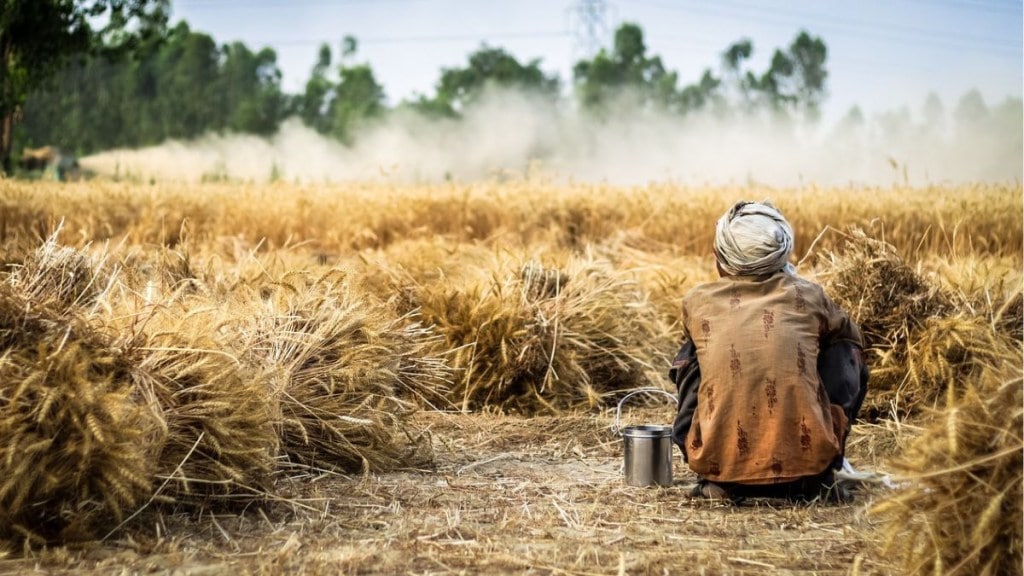Manisha Ghule & Sangeeta Bhattacharya
Apart from being a high climate risk, drought prone district of the Marathwada region, Beed has chronically poor human development indicators and reports of gender based violence against women from sugar cane cutting communities. In Beed, forcible uterus removal, child marriage and unsafe migration are prevalent forms of oppression of women and adolescent girls. This is further exacerbated by farmers suicides due to changing rainfall patterns. In 2020, 400 suicides were reported annually from Marathwada in the first six months of the year.
Marginal farmers from dryland areas, Dalit and Adivasi households, landless labourers, urban poor, and especially women from these communities are the worst affected by climate change. The number of widowed women is increasing in the backdrop of farmers committing suicide due to constant crop losses and indebtedness. Often, women have to endure more exploitation from moneylenders, other stakeholders in the system for the losses or debts owed by their husbands.
Having faced some of these adversities first-hand, Manisha co-founded a non-profit focusing on the hardships faced by women in the region, most of whom come from extremely marginalized communities including NT-DNTs and Dalit communities. Through collectivizing women from these communities to start a bank, many women were able to start small businesses and enable household savings.The financial support has led to a sense of confidence, social acceptance, entrepreneurial life skills and most of all a sense of community to the women. Manisha’s lived experience of the community’s realities enabled her to bring more women forward to access their rights.
Parvati, a 45-year old from the community expressed the impact of changes, ‘I was not allowed to leave the house. I started to contribute Rs.50 per month secretly. My confidence grew and I purchased a buffalo through a loan facility. My family were shocked and happy. My family’s trust in me grew.’Parvati feels that, now, ‘Me pan kaiyetiahe (I am something)’.
The Bank was set up in 2017 and since then it has provided 80 lakhs worth of loans to the women through savings and credit services. The women from the SHGs are its board members. The CEO of the bank is Lakshmi,“the bank is in the service of the women, if we get a call that a woman needs money, the bank employees ensure they go all the way to her home to give her the amount”. Such changes and support towards building agencies can secure the lives of women and families in high climate risk areas with pervasive issues related to social and gender justice.
To make any real progress towards mitigating these challenges, it is imperative to adopt a “justice” lens towards both gender and climate action, imbibed across all relevant stakeholders in the system, some of these recommendations co-created with grassroots leaders and communities surviving climate and social injustice include-
1. The funding ecosystem needs to understand and amplify the role of grassroots community leadership and invest in solutions that are ground up, giving a chance to much needed local solutions. High philanthropic investments can be instrumental in demonstrating the value of hyperlocal models that work at the intersection of gender, climate and other socio-economic issues, that can then be scaled up across different geographies. More organizations such as Manisha’s Navchetana Sarvangin Vikas Kendra, need to be identified and funded.
2. Given the clear interlinkages between poverty, gender and climate issues – we must take policy to people, instead of people to policy if we are to quickly cater to the growing climate crisis. Policies therefore need to be designed with a people-first approach, one that goes beyond the problem statements defined by a set of select actors in the system. Active inclusion of affected communities as key stakeholders in decision-making will be critical for climate justice with social impacts .
3. Acknowledging women as independent individuals who can and should access rightful services without the need for being associated with patriarchal constructs of “husband” and “father” is imperative.
While Beed as a district has caught significant attention with regard to farmer suicides and cases of hysterectomies, the issues are far deeper and require a long-term commitment from institutions engaged in building agency and a just environment for vulnerable communities, especially as the climate crisis worsens.In order to enable women to claim their rightful space in a rapidly changing environment to lead a dignified life – the dichotomy of distress and resilience in their everyday lives will need to be critically examined and sensitively addressed by policy makers and implementers at all levels.
About the authors: Manisha Ghule, Director, Navchetana Sarvangin Vikas Kendra and Sangeeta Bhattacharya, Manager, Dasra.
Disclaimer: Views expressed are personal and do not reflect the official position or policy of Financial Express Online. Reproducing this content without permission is prohibited.







